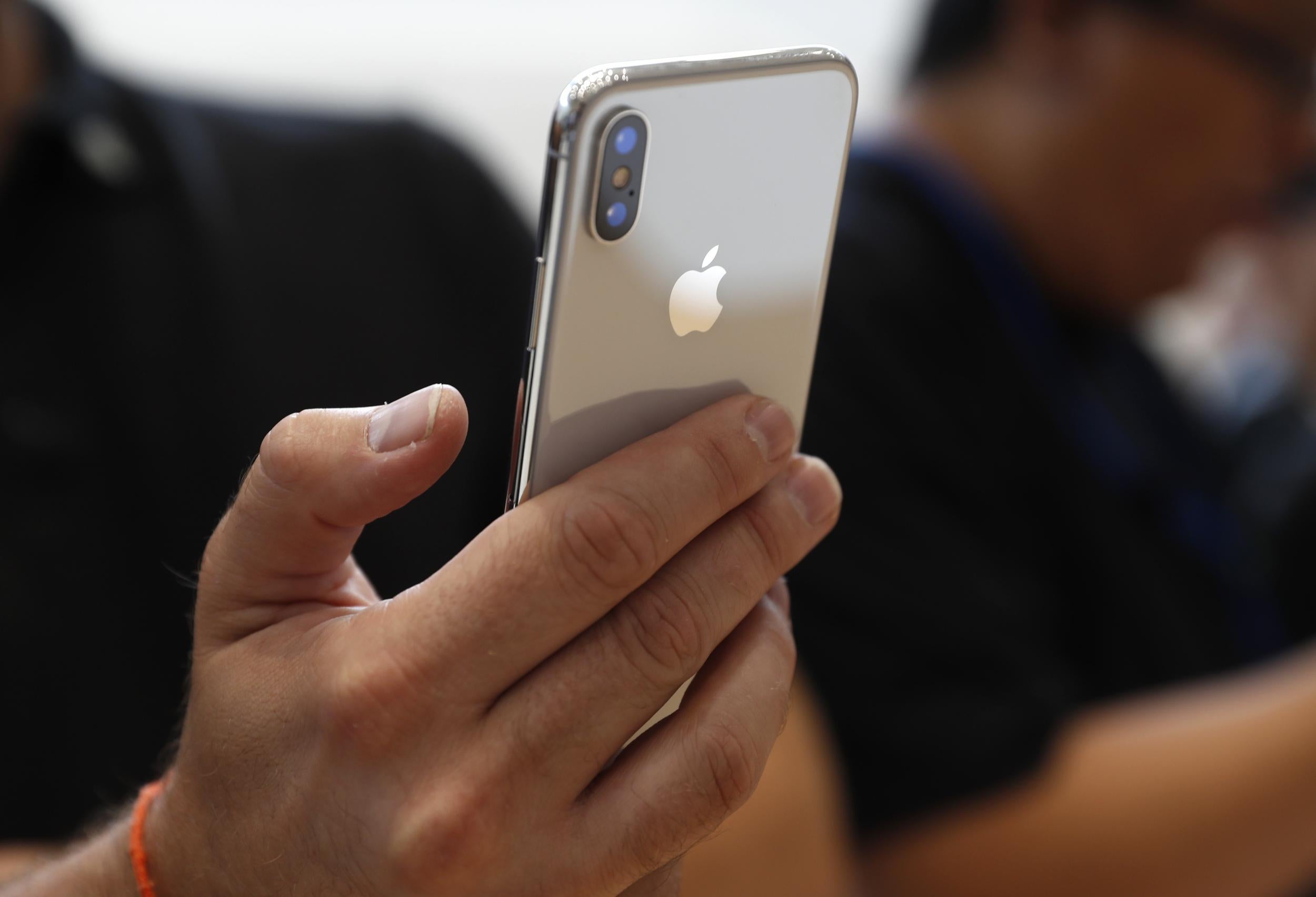The most interesting thing about the new iPhone X is its subtle nod to Brexit
Did you notice something strange about the price?


Apple have weaved their magic and produced a new phone – the iPhone X (pronounced iPhone ten). Perhaps the most surprising thing about the bold and beautiful phone is the price.
The iPhone X has a price tag of £999 in the UK and $999 in the US. Yes, you read that correctly. As far as Apple is concerned the dollar and the pound are now at parity.
Some may point out that British VAT is higher than US sales tax, and in that there is a point. The British do pay approximately 15 per cent more (depending on the state in which one pays US sales tax) for goods than the US reflecting the difference in VAT on one hand, and state-based sales taxes in different US states.
However, in every previous incarnation of the iPhone the pound Sterling price had a number lower than the US dollar price, even though UK VAT was higher. The pound was stronger back then.
Those on the Brexit camp love to say that the UK economy is going along swimmingly since Brexit. But the iPhone X shows that there are some deeper and more hidden impacts of Brexit that we are already feeling. There is no need to wait for the cliff. While in some places data looks good and the cliff has yet to be approached, in other places we have already fallen off.
On the positive side, unemployment has dropped slightly since Brexit. Not only that, wages growth has been going along at 2.1 per cent since Brexit. “No cliff here”, Brexit campaigners would say.
Remain campaigners would argue that this is more to do with the sustained economic recovery globally post financial crisis. They would argue that Britain has moved from the best performing to the worst performing economy in Europe and would argue, perhaps with some validity, that without Brexit unemployment would be even lower.
One data point that it is hard to argue with is the exchange rate. The pound has dropped, sustainably, by around 20 per cent since Brexit. This means every UK household is now 20 per cent poorer compared to the rest of the world since Brexit.

The pound’s drop is one of those double edged hidden impacts of Brexit. While the lower pound makes our goods cheaper to export, which is good for manufacturing, it make imported goods – like iPhones – more expensive. British people will start to feel the impacts of Brexit on their hip pockets as they buy imported goods or travel.
Those who have been lucky enough to take a summer holiday abroad this year can all attest to how much more expensive their holiday was – because the pound is down 20 per cent.
The drop of the pound is the major reason why inflation is going up in the UK – nearing 3 per cent now. The 3 per cent inflation since Brexit puts the wages growth of 2.1 per cent since Brexit in a very different light. If prices are going up nearly 3 per cent and wages are only going up 2.1 per cent, that means UK wage earners have gone backwards 0.9 per cent since Brexit.
These are just some examples of where the impact of Brexit is bigger than we think, because the impact is largely hidden. Holidays and iPhones are just two ways in which, what is blindingly obvious to economists, is now showing itself to the average UK consumer.
We are more economically vulnerable post Brexit than perhaps we think.

As authors of this piece, we are not rabid anti-Brexiteers. Indeed we have argued earlier on these pages that by linking with China and adopting a better business visa system there is a narrow path to post-Brexit success.
But we have also warned on employment and on negotiations with Europe that there is a wider path to failure.
But to secure the narrow path to success we must be prepared, and prepared to support the government’s negotiations.
We have been stunned that in a survey we did for Brexit Advisory Services that half of businesses surveyed have not even considered Brexit impacts on their businesses and are woefully unprepared for Brexit opportunities and threats. Businesses do not understand that their time for action is now.
Despite frequent calls from Government, few small and medium businesses have been contributing to Government thinking, policy making and our Government’s negotiation position with Brussels. There are organisations that can help businesses lobby, but few are seeing small businesses get involved.

We warned in an earlier article that 47 per cent of skilled and 37 per cent of unskilled EU workers are considering leaving the UK. How many businesses could survive if 47 per cent of their staff left?
Almost no businesses that we have spoken to have asked their staff, key suppliers or key customers what the post Brexit plans are for suppliers, customers and staff. If businesses do not ask, because they “hope”, head in the sand like, that everything will be ok, they will miss opportunities and miss threats that come post-Brexit.
Apple may have just done Britain an enormous favour. By showing, quite dramatically, the post Brexit impact of the pound, Apple reminds us that we, the British consumer, worker and small business, need to be prepared for all positive and negative eventualities of Brexit. It’s coming people. Get ready for the ride.
Andrew MacLeod is a visiting professor to Kings College London, Chairman of Griffin Law, a non-executive director to Australian and US companies, and co-founder of BrexitAdvisoryServices.co.uk He can be followed on @AndrewMMacLeod. Liz Roberts is an advisor at BrexitAdvisoryServices.co.uk
Join our commenting forum
Join thought-provoking conversations, follow other Independent readers and see their replies
Comments
Bookmark popover
Removed from bookmarks